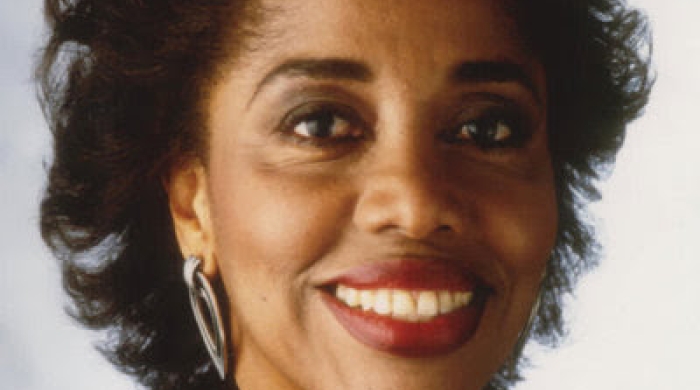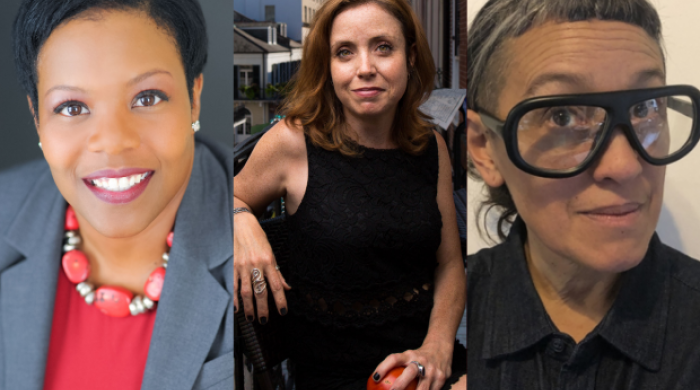Xavier Jernigan (MA ’04) is forging cultural partnerships in the music industry and working to be a voice in the room for those who are overlooked and undervalued.
Xavier Jernigan (MA '04), director and head of cultural partnerships at Spotify, hosts The Get Up (Spotify's Morning Show). In his Valedictory address to 2004 Steinhardt graduates, Jernigan urged his classmates to use their voices to speak up for others and answer the call to service. In the 18 years since his graduation, Jernigan has heeded his own advice, working at The Kennedy Center Hip Hop Culture Council to insure that Hip Hop is included in the nation's musical heritage and advising corporate clients on their culture, diversity, and inclusion strategies. We spoke to him about the entertainment and business sides of the entertainment business.
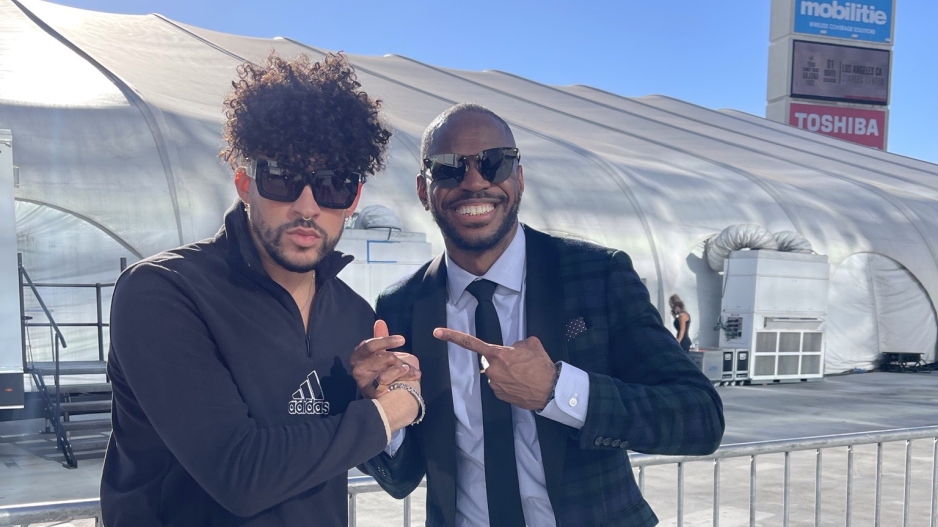
Xavier Jernigan (right) with Bad Bunny, the moment it was revealed that Bad Bunny was Spotify’s most listened to artist in the world.
Tell me about your trajectory from music business student to head of cultural partnerships at Spotify. Did you have help along the way?
I have been extremely blessed in my career thus far in my journey from music business student to Spotify executive and host. I'll be upfront with you and tell you that it required a lot of tough decisions, betting on myself, and boundary setting. Every job that I've had post-NYU -- and that includes my first music business internship -- came through an email, a call, or a text. Someone thought of me. I have been helped every step of the way and I'm trying my very best to do the same for others.
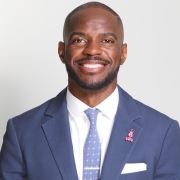
I always try to look ahead before accepting any position, to think strategically about how it will fit into my overall trajectory."
Your first job out of NYU was working as Sean "Diddy" Combs' personal assistant. What was that like?
It was equal parts exciting and physically/mentally/emotionally taxing. He asked me to do the job following an interview I was able to land with him backstage on Broadway when he was starring in A Raisin In The Sun. The interview went so well that he asked me to come work with him as his personal assistant and protege. Our agreement, up front, was that I would learn as much of the business side of things as possible and then after a few years I would take over the company! Super exciting and big career and life moment for me.
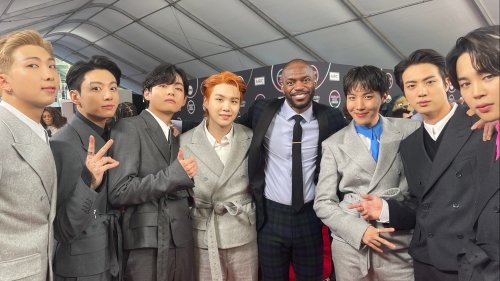
Xavier Jernigan (center) with BTS at the American Music Awards.
But then I noticed early into the job that my day to day duties skewed more to the personal side of things. I talked to him about it a few times and things didn't change, and I feared it would have a lasting negative effect on my career trajectory, so I quit. (I did not have another job and student loan payments were going to start kicking in soon.) I was scared, but I decided that my convictions had to outweigh my fear. And, in the end, it was worth betting on myself to better position my career direction. I took some time to reflect and regroup, and after a few months of interviewing across a few labels and media companies, I got an unexpected call from Diddy's sister. She worked at Bad Boy in digital marketing and said she needed my help working across some projects that were coming out. Although I was reluctant, I knew that this was the right opportunity at the right time, so I said, "yes," and was able to take the lead in the marketing of a Notorious B.I.G. album. The job put me on the map even though I was making peanuts. I realized, too, that having the right opportunities and experience would lead to money at the proper time.

This business is designed to weed people out. It's a "no" business. You have to stick with it and stay encouraged because the world needs art. The world needs fresh voices."
How did you find your next opportunity?
I happened to run into an NYU music business classmate right across the street from Bad Boy while I was running an errand. As we walked a couple of blocks down Broadway, I learned that we were doing the same kind of work. He was working at Universal Motown and Republic and mentioned that they were expanding their digital marketing team. He asked me how Bad Boy was treating me and if I was interested in him speaking to his manager about me. I interviewed a short time after that and next thing I knew, I was a digital marketing manager at Universal Motown and Republic Records.
At Republic, I learned that there was this newly-signed artist named Amy Winehouse. I knew she had something special so I raised my hand in a meeting and asked to work the project. Things moved very quickly after that. I was promoted to director in six months and senior director a year later. Then I was asked to move over to Motown as a senior marketing director where I handled digital and traditional marketing. I got to work with artists that influenced and shaped my sense of myself, like Erykah Badu and Q-Tip. Then I took a senior marketing director role at Epic Records where I was Future's first product manager and launched his career.
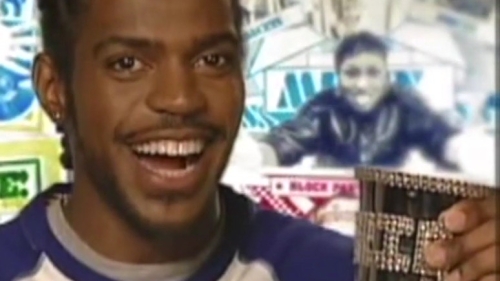
Xavier Jernigan celebrates his first appearance on VH1's "100 Greatest Hip-Hop Songs.
And then a college friend helped you to take it to the next level?
Somewhere between UMG and Epic I started getting asked to appear on TV shows to provide cultural context. This opportunity came from a conversation on a bus ride in Brooklyn with one of my classmates from my MBA program at Florida A&M University. She worked as a producer at VH1 on a countdown show, remember those? She said they could use someone with my background and experience and asked if I was interested in taping a major countdown show of the "100 Greatest Hip-Hop Songs of All-Time". Even though she recommended me, and thought I would be great, I didn't have name recognition. I was still early into my career, only a few years out of NYU, but I really wanted this. I reached out to Diddy and asked if he could call and email the executive producer of the show and endorse me as a "young rising voice to be heard." Diddy didn't hesitate. He made the call and sent the email, and I got hired as a pundit.

I want to be a voice in the room for those who are often overlooked and undervalued."
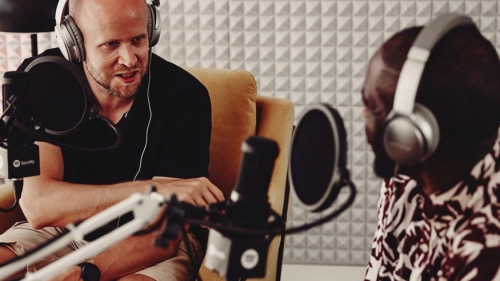
Xavier Jernigan interviews Spotify CEO Daniel Ek at Cannes.
How did you land at Spotify?
I always try to look ahead before accepting any role, to think strategically about how it will fit into my overall career trajectory. When I started at Spotify I spent a lot of time thinking about the best way that I could add value. The best way for me to do that was to lean into the fact that I had experience on the label side from working with Spotify on the outside, and I was coming in with a fresh set of eyes. I used that to create a new role on my team called cultural curator. This person was tasked with curating around cultural moments, which was something that I felt Spotify could use as a differentiating point from competitors. The job was an instant hit and I had a lot of passion for the work so I pitched that I create a whole team around the work and I became head of cultural partnerships. I've since morphed again and have been hosting podcasts. I've hosted season two of Showstopper, a podcast called, The Window. I now host Spotify's Morning Show, The Get Up - a mix of talk and personalized music based on your listening habits -- and various Spotify events around the world. It's truly been an amazing, unpredictable ride!
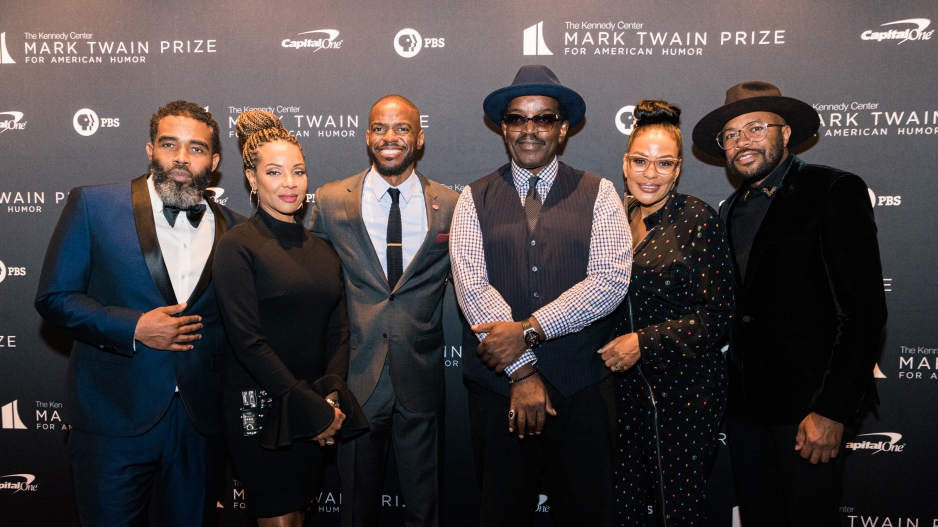
Xavier Jernigan at The Kennedy Center with fellow Kennedy Center Hip-Hop Culture council members (l - r): Pharoahe Monch, MC Lyte, Fab 5 Freddy, Beverly Bond, and DJ D-Nice.
Tell me about your work on behalf of Hip-Hop culture.
One of the greatest honors of my career has been the work that I do for The Kennedy Center. I was invited to be a founding member of The Kennedy Center’s Hip-Hop Culture Council alongside many of my musical heroes! Our mission is to bring Hip-Hop focused programming to our nation’s performing arts center. Hip-Hop is a global art form born in the states, but we find that Hip-Hop is often excluded from spaces and stages that celebrate culture. We are working to counteract that.
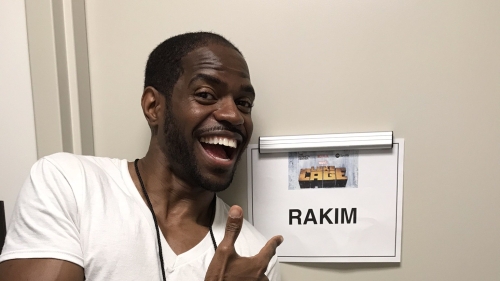
American rapper and record producer, Rakim, backstage at the Kennedy Center.
I'm very proud to have brought to life the premier of Marvel's Luke Cage Season 2 premiere at The Kennedy Center on Juneteenth! I brought Netflix and Spotify together for a special one-of-a-kind celebration of Hip-Hop. We used Spotify data to invite the DC area’s biggest fans of the artists featured on the Luke Cage soundtrack to view the first two episodes of the new season days before the Netflix premiere. KRS-One, who performs in an episode of the show, performed immediately after the screening, but it didn’t stop there! Netflix recreated the Harlem's Paradise, the nightclub from Luke Cage in The Kennedy Center Atrium for an afterparty where artists featured in the show performed live -- all backed by DJ D-Nice and The Midnight Hour (Adrian Younge & Ali Shaheed Muhammad), who scored Season 2. The legendary Rakim closed out the unforgettable night with a surprise performance! I can’t forget to mention that the event sold out in three minutes of tickets going on sale!
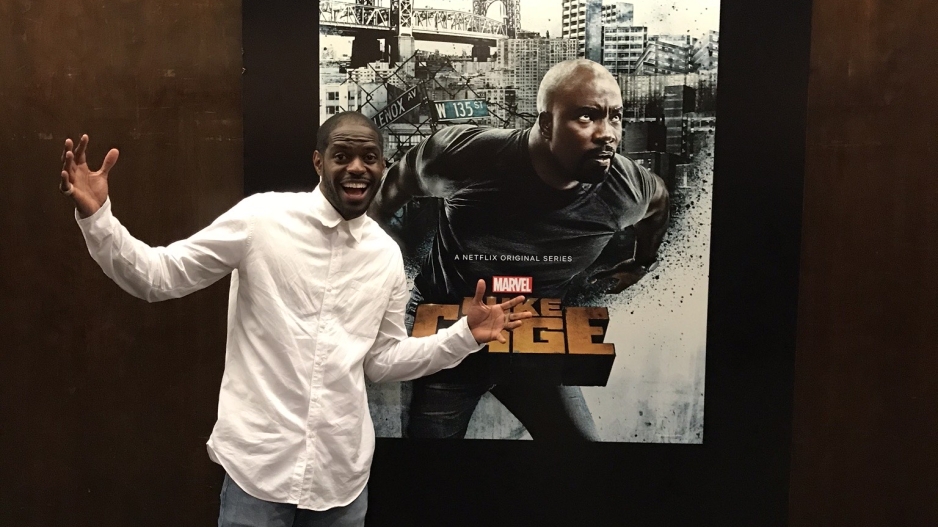
Xavier Jernigan stands in front of The Kennedy Center's Luke Cage premier event poster.
How did your education prepare you to answer the big questions that you faced in the world?
There will always be people that have more experience than you when starting out or when you're early into your career. My education gave me the confidence and actual knowledge base to hit the ground running once opportunities presented themselves. My confidence largely comes from preparation. My education prepared me and taught me how to get prepared for new challenges.
When attempting to answer any big question that I face in the world, I start by doing research. Thorough research. Then I think about all of the people that haven't been afforded the opportunity to be in the position that I'm in. I want to be a voice in the room for those who are often overlooked and undervalued. When I was in the music business program, I met so many people from different places than where I'm from. My cultural and worldview broadened, and I take that with my everyday.
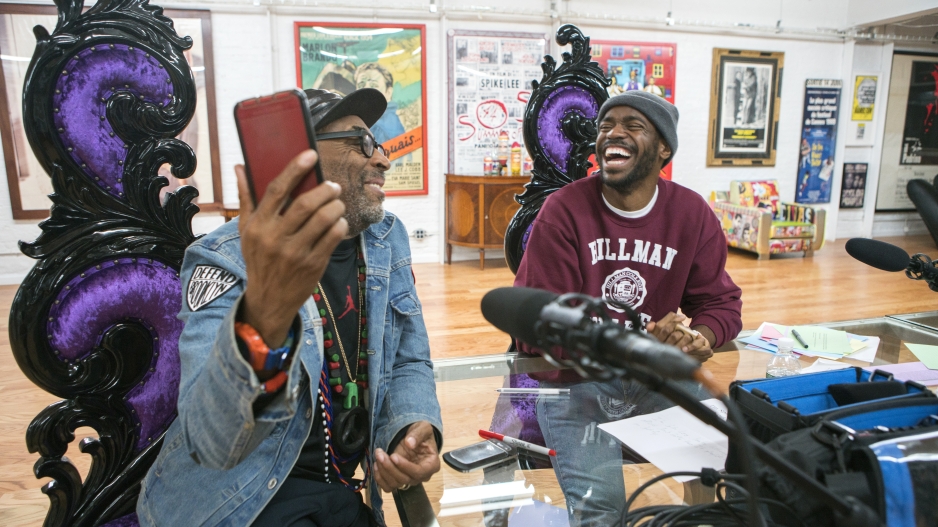
Xavier Jernigan (right) interviews filmmaker and NYU Tisch alum, Spike Lee, at his 40 Acres & A Mule office.
What advice do you give to young artists who are entering the workforce?
Your sense of purpose cannot come from a job. Believe me, I get it. A job and career makes us feel like we are contributing to the world, but know that you can contribute to the world with or without the job. If you understand that before you get the job then you can make the decisions that you need to make once you have the job. Focus on your purpose, your "why?". Ask yourself what you are in this for. Ask yourself that often and challenge it. My purpose is simple: be a blessing to others and a light in this world. Once I was clear on that it helped everything else fall into place and guide my decision making along the way. The job will come. The money will come. Get anchored in purpose.
Also, this business is designed to weed people out. It's a "no" business. You have to stick with it and stay encouraged because the world needs art. The world needs fresh voices. Music and entertainment helps people get through their day and gives us all something to look forward to. Don't give up and be persistent, but make sure you are led by purpose.
Related Articles
Alum Tania León Wins Music Pulitzer For "Stride"
"Stride" was inspired by Susan B. Anthony and the pioneering feminists of her time.
NYU Steinhardt Announces 2021-2022 Dean’s Scholars-in-Residence
Kaya Henderson, Danielle Nierenberg, and Julie Tolentino bring expertise in education, food systems, and performance art as NYU Steinhardt’s 2021-2022 Dean’s Scholars-in-Residence.

